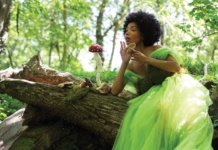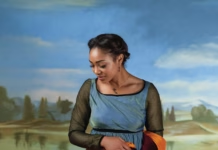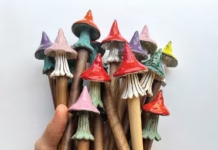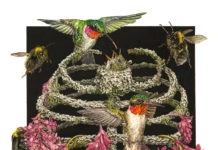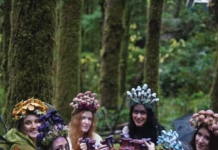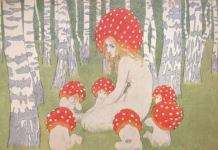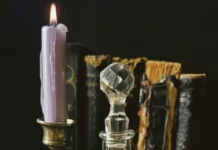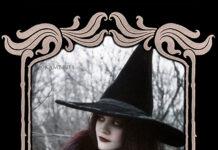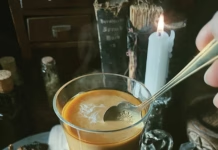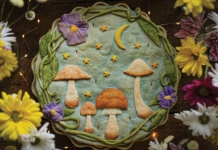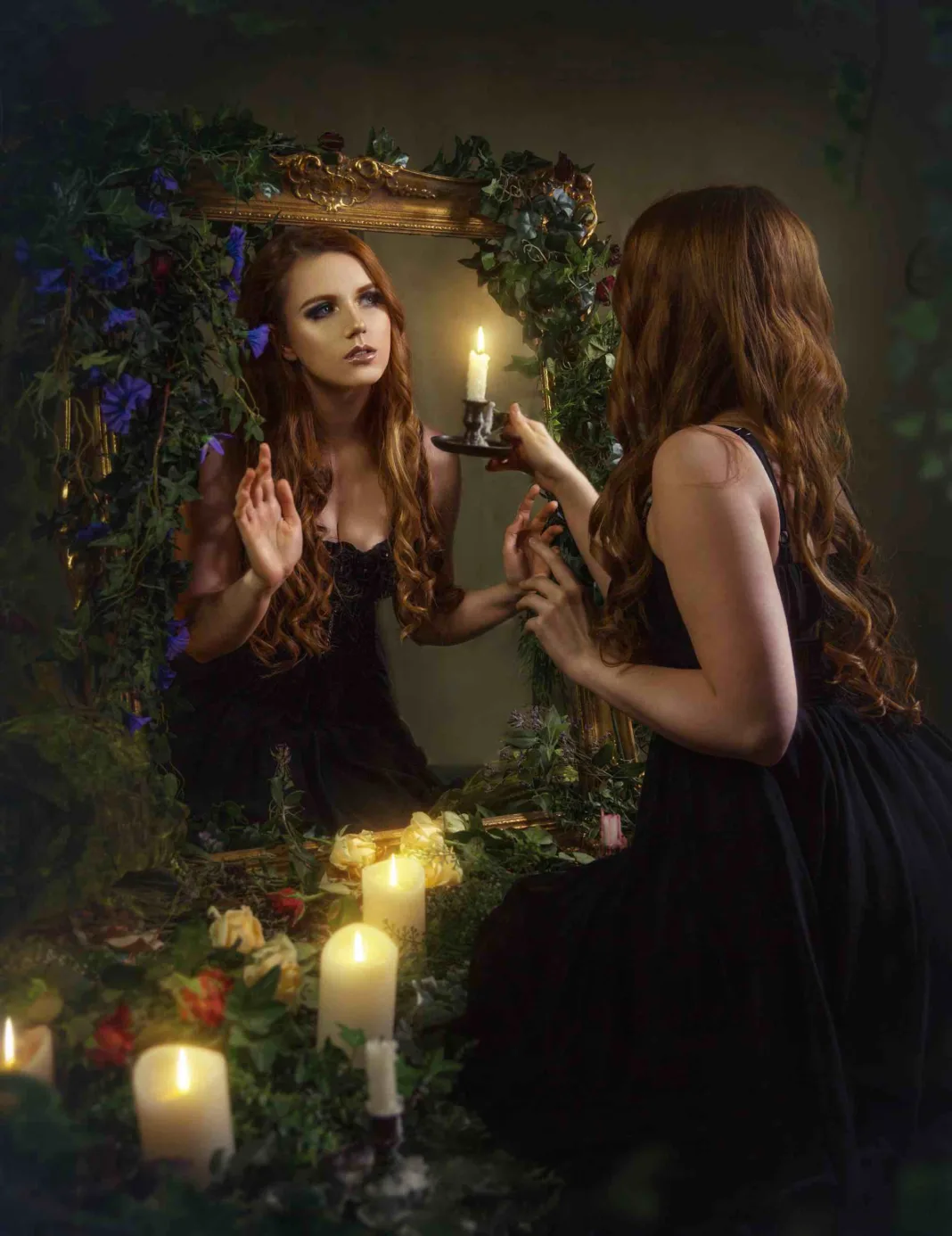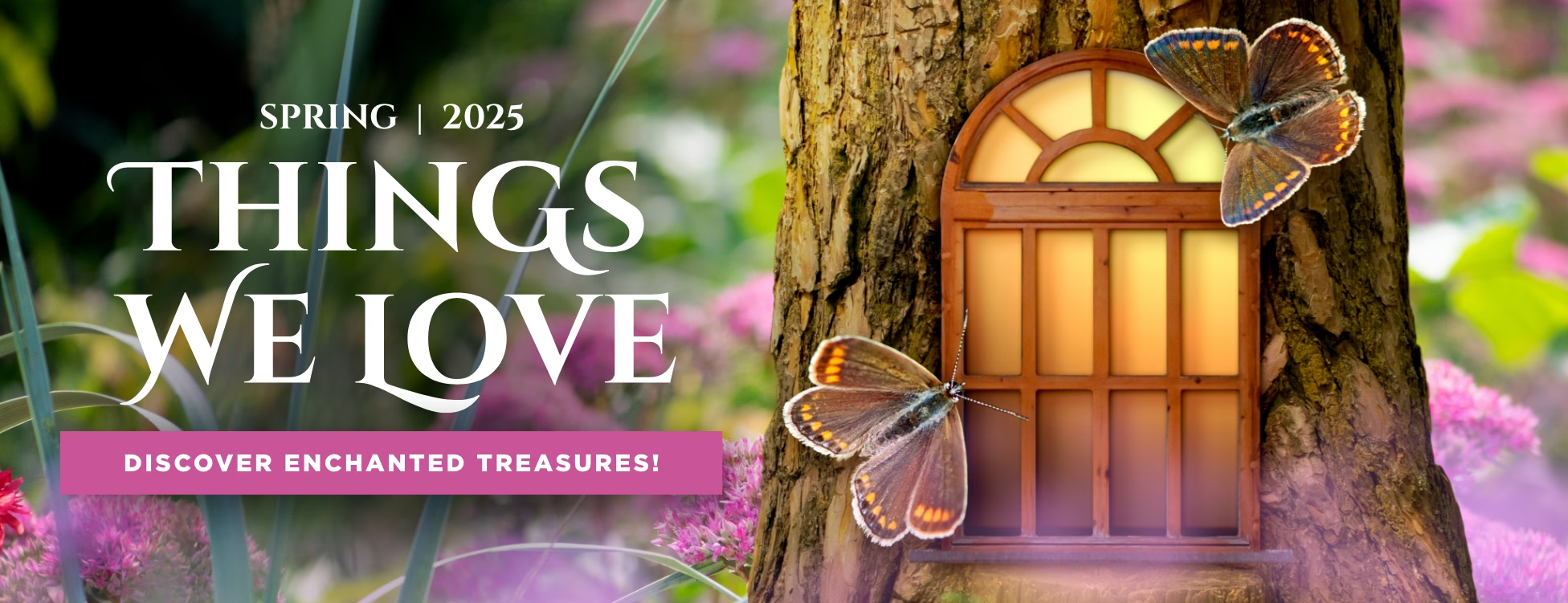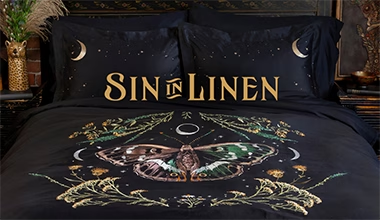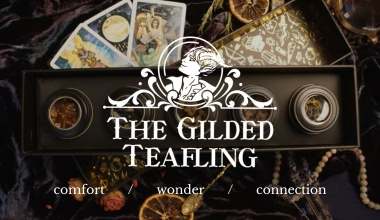Feature Image:
PHOTOGRAPHY BY NATALIA LE FAY
Let’s start with a house. You can inherit the house from your great aunt, whose name was Agatha. She never liked your father or your grandfather, who was her younger brother, but she has somehow, inexplicably, left her house to you.
It has thirty-three rooms, more or less, depending on how you count pantries, the hidden room in the attic that would go unnoticed except for the peaked window in the dormer from which a bust of Persephone looks on the lawn below, and the room off the front hall, too small for any furniture except one inlaid demilune table with wax flowers under a cloche. A mirror on the wall makes everyone who looks into it appear sepulchral. It must be a trick of the light. And what about the storage room under the stairs from which things always go missing? It has devoured tennis rackets, golf clubs, umbrellas, and winter boots, but only the left boot from each pair. It contains a row of right-foot boots, looking vaguely bereft.
The gardens are extensive and overgrown. From the French doors you can see the perennial beds, with poppies and foxgloves, the tall blue spires of monkshood. There is henbane growing among the other flowers. Beyond the perennial beds are the rosebushes, their blossoms drooping now, the hips reddening for autumn. They are arranged around a sundial which is, impossibly, always pointing toward midnight. You can see the yew alleys, dark and mournful, leading to the walled garden. You have not yet found your way in, but there must be a key somewhere.
Beyond the gardens you can see meadows, and then the bottomless lake shining in the sunlight, and then forest. Who knows what lives there.
Will you flee the house? You are determined not to flee the house.
There must be a secret, at least one. Which would you prefer? Here are a few possibilities:
That great aunt Agatha poisoned her husband.
That the garden is haunted by the ghost of Millicent, your second cousin twice removed, who drowned herself in the ornamental well. Her unfaithful lover, who lives on the neighboring estate, has become a morose old man, sunk in his grief. You feel no sympathy for him. His grandson Seth, whose parents died when he was a child in a mysterious boating accident, is, however, quite handsome.
That there are jewels hidden somewhere on the estate. They date back to the days when smugglers visited the coast. One particular smuggler, Captain Jack Rathbone, who had a patch over one eye, is reputed to have buried a magnificent emerald necklace in some secret location. He meant it for his lover, great aunt Agatha’s own great aunt, called Roberta, but she betrayed him to the local constabulary and it was never found. Later, Roberta herself disappeared. Perhaps if we dig in the crypt, we will find the necklace around Roberta’s skeletal neck.
Your father’s twin sister, called Agatha after your great aunt, was snatched from her perambulator when she was only two years old and has never been heard from since. Could she be out there somewhere? The woman supposed to have snatched her, Granny Thorne, who lived in a run-down cottage at the edge of the estate and had a reputation as a minor witch, died in prison cursing your family’s name. Is the curse real, and will the house really crumble around you, falling into rubble and ruin, a memory covered with ivy and honeysuckle?
Is the secret a mysterious book, said to be able to foretell the future, hidden somewhere in the library? Long ago, Agatha’s great uncle Magnus, who was an alchemist, disguised it as some other book, but which one? War and Peace? The collected fairy tales of the Brothers Grimm? Emma?
Of course, there is the secret walled garden, but that’s so obvious it’s scarcely worth mentioning.
Or you could have all of these, all the secrets and mysteries
at once. There is no rule limiting you to just one. You can even create your own. I saw you meeting Seth in the summerhouse. Was it a tryst? A conspiracy? What are the two of you plotting?
Once you own a house with a secret, naturally you must have the proper wardrobe. You arrived with the clothes you brought from the city, appropriate to your role as whatever you were there: barista, corporate lawyer, librarian—I don’t remember exactly, and it doesn’t much matter anyway. Now you are a gothic heroine and must be appropriately dressed. You will find a trunk in the attic filled with Aunt Winifred’s theatrical costumes—silks and velvets and brocades, hats with drooping feathers. They will look splendid on you. And there are cousin Mildred’s nightgowns, still folded in the chest of drawers in the blue bedroom. They smell of lavender and are perfectly appropriate for haunting the halls in search of a midnight snack of milk and cookies. Mrs. Wetherstone, the ancient housekeeper, always leaves cookies out for you, oatmeal or chocolate chip. What secret does she hide behind her perfect demeanor? Could she be Granny Thorne’s daughter, come to enact her mother’s revenge? And yet her chocolate chip cookies are the best you’ve ever tasted, and she hasn’t poisoned you yet.
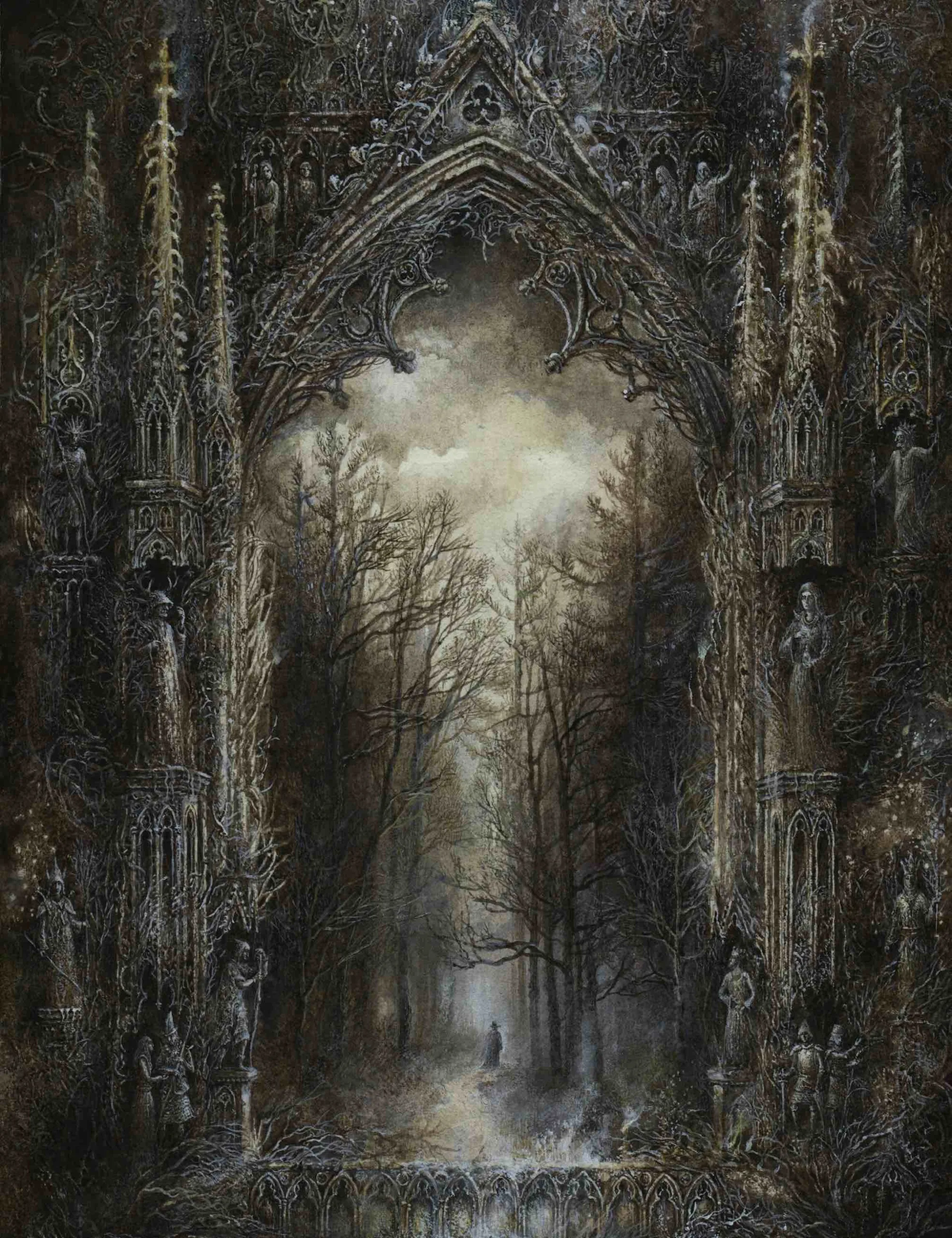
Why did Aunt Wilhelmina leave her theatrical career so abruptly? Did she really run away with a Maharaja or a Hollywood film star? Did she go down on the Lusitania, or has she somehow survived? No one in the family will tell you.
In the evenings, when you sit out on the veranda, dressed in one of Wilhelmina’s embroidered silk robes, you can hear the distant wail of a child, or is it peacocks? But there are no peacocks on the estate.
Luckily, you will be accompanied everywhere by your trusted companion, Balthazar, who is an Irish wolfhound or perhaps a Saint Bernard. He guards you as though you were his own puppy. He has even growled at Seth—should that make you suspicious? Handsome sons of the neighboring landowner are never to be trusted.
Your friends will visit from the city—Tyrell, whom you met in law school; Amanda, who’s trying to make a name for herself as a singer-songwriter; and Daphne, who reads tarot cards and says she can see ghosts. Tyrell will wonder what in the world you’re going to do with such a gloomy old place—sell it, right? Amanda will love it and want to film a music video in the garden, until she sees cousin Millicent walking down the stairs with algae dripping from her long, wet hair. Then Amanda will take the first bus back to the city, telling everyone that you are totally nuts to live in that creepy house. Daphne will succumb to its charms and start a shy flirtation with the gardener, a silent young man named Tom Green. You are not entirely sure whether Tom Green is human—sometimes he seems like a walking tree. Birds sit on his head, and he can call the squirrels by making a chirruping noise. He is out in all weather, even when it rains. Once, he took off his cap and you thought you saw horns on his head, curled like those of a ram. But it could have been your imagination.
It’s not a problem if Daphne decides to stay. After all, you have thirteen bedrooms, and it’s nice to talk to her by the fire in the evenings, even if her tarot readings always show the Day of Judgment.
The only thing missing is a love interest. Will it be Seth, despite his unwillingness to talk about his lonely childhood and his surreptitious visits to the lake where his parents drowned? Or Adam Goodman, the farmer on the estate, who brings you tomatoes and zucchini grown with his own hands, cheese from his goats, and talks like a character out of a Thomas Hardy novel? Or Tyrell? You’ve always had a crush on Tyrell. Or Amanda, who’s always had a crush on you? Or even the ghost of Captain Jack Rathbone, whom you suspect may also be haunting the estate, looking for his emerald necklace?
What now, gothic girl? What now, my modern Catherine?
You could go back to your contemporary life, work, and get coffee at Starbucks with your friends and watch Netflix, then fall sleep on your Ikea bed in an apartment without ghosts. Or you could realize that life in the city would be just as gothic in its own way—just as filled with old griefs and buried secrets, bosses as unpleasant as Seth’s grandfather. You could learn what your namesake Catherine Morland learned: that all the world is a gothic stage, really. Perhaps it’s more honest to accept who you are, the proprietress of this estate and its surrounding acres, comprising forest and fields and streams, one bottomless lake that may have an ancient monster in it, at least three ghosts if we include Aunt Agatha, invisible children or peacocks (it’s hard to tell), an exquisite wardrobe, thousands of books (one of which may be magical), a housekeeper, a gardener, a live-in best friend, possibly a small demon in the cellar (you’ve heard it growling but you’re not completely sure), an emerald necklace if you could figure out where it’s hidden, and insatiable curiosity. You’re like Bluebeard’s bride, opening every chamber, but smarter than she was. Right, Catherine? This is your house, and you don’t need saving.
Who knows what will happen? If you marry Seth and he tries to dispose of you in some malevolent way, such as putting arsenic in your morning glass of orange juice, you may need to shove him into the storage room under the stairs, where he will go the way of the golf clubs and tennis rackets and missing umbrellas. You may find the key to the secret garden, which may contain the well in which cousin Millicent drowned, finally allowing her soul to rest in peace—or just some overgrown rhododendrons. The monster in the lake might emerge, and you might befriend it and then write a paper on this rare survival from the Cretaceous for the Royal Journal of Paleontology. You could name it Mortimer.
The ghost of great aunt Agatha may start haunting the breakfast room, sitting in your favorite chair, reading a book of sermons. Aunt Agatha, your father’s twin sister, might show up in a green Bugatti, claiming that the house is really hers by right. She will reveal that she was not kidnapped by Granny Thorne after all but ran away at the precocious age of two to join the circus. She has been living as the world-famous trapeze artist Flying Flossie. You might have to fight her in court for your inheritance, but don’t worry. You went to law school, right? Anyway, the house loves you and will accept no other mistress.
The house might, at some point, be taken over by crows, or a film crew if Amanda decides to make that music video after all. Don’t worry, gothic girl. You will handle it all with poise and equanimity.
You may be doomed by Granny Thorne’s curse. Someday, you may have to flee the house after all, dragging a reluctant Daphne with you. But until then, you may as well start searching for that emerald necklace and Uncle Magnus’s book, with the faithful Balthazar at your heels, ever watchful.




